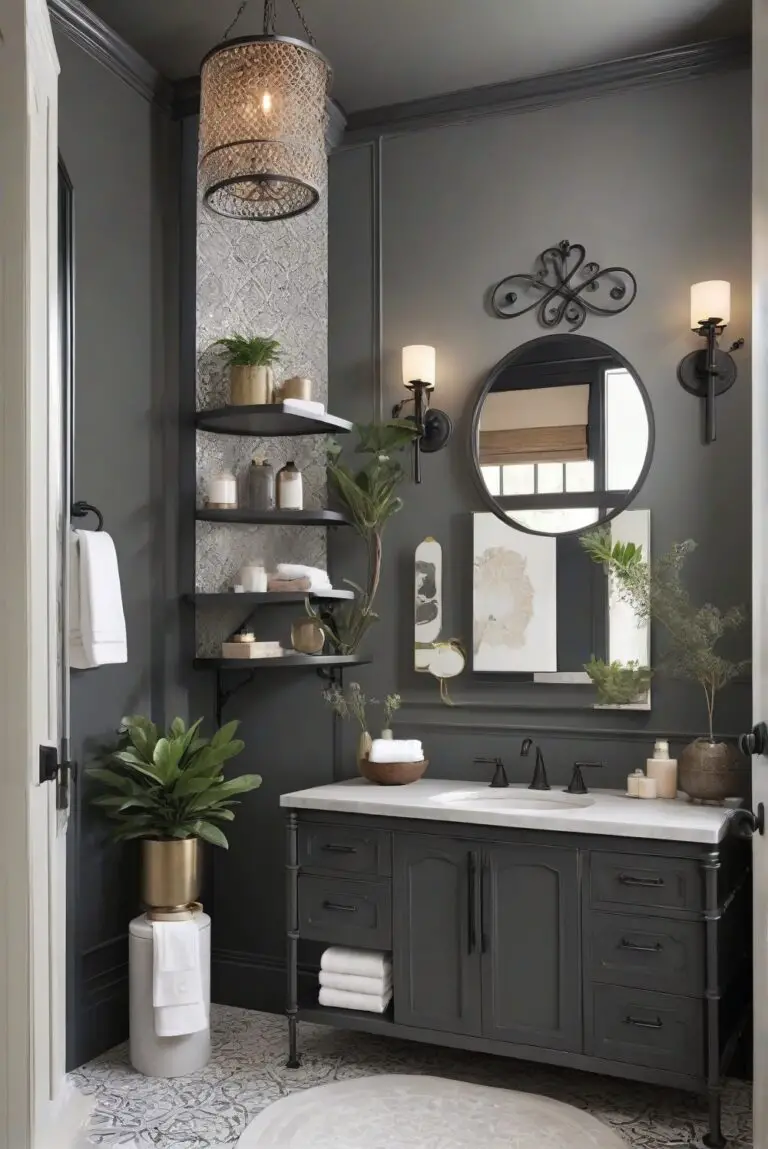Discover how to navigate the market with confidence in this daily routine guide for interior designers. Explore new decor trends and create stunning home designs!
As part of my daily routine, I take on new home adventures by exploring different home decorating ideas. I focus on home interior design and space planning to create a harmonious atmosphere in my living space. From decorating interiors to designing kitchen and living room interior, I pay attention to every detail. I consult with designers for wall paint and color matching to ensure a cohesive look throughout my home. By incorporating primer paint for walls in the color scheme, my home decor interior design stands out. Following a systematic approach in interior bedroom design and utilizing home paint colors effectively, I navigate the market with confidence.
Learn about the current real estate market trends
To successfully navigate the market and make informed decisions when purchasing a new home, it is crucial to understand the current real estate market trends. This includes staying updated on prices, inventory levels, and interest rates. By being aware of these factors, you can determine the best time to buy a property and negotiate effectively with sellers.
Know your budget and financial options
Before embarking on your home-buying journey, it is essential to evaluate your budget and financial options. This involves assessing your current financial situation, including income, savings, and debt, to determine how much you can afford to spend on a new home. Additionally, exploring different mortgage options will help you choose the most suitable financing solution for your needs.
Research different neighborhoods
Researching various neighborhoods is key to finding the perfect location for your new home. Consider factors such as amenities, schools, safety, and commute options when evaluating different areas. By thoroughly researching neighborhoods, you can ensure that your new home is situated in a location that aligns with your lifestyle and preferences.
Work with a reputable real estate agent
Partnering with a reputable and experienced real estate agent is essential for a smooth home-buying process. A knowledgeable agent can provide valuable guidance, help you navigate the market, and negotiate on your behalf. Choose an agent who understands your needs and priorities to ensure a successful home purchase.
Attend open houses and tour homes
Visiting open houses and touring potential properties is a great way to familiarize yourself with the real estate market. By physically exploring homes in your desired area, you can get a sense of the available options and refine your preferences. Open houses also provide an opportunity to ask questions and gather more information about the properties.
Get pre-approved for a mortgage
Obtaining a pre-approval from a lender is a crucial step in the home-buying process. A pre-approval demonstrates to sellers that you are a serious buyer and have the financial capacity to purchase a home. It also helps you understand your budget and streamlines the buying process by providing a clear price range to focus on.
Negotiate with sellers
Negotiating with sellers is an important aspect of buying a new home. Work closely with your real estate agent to craft a competitive offer and negotiate the best price and terms for the property you want. Effective negotiation skills can help you secure a favorable deal and ensure a successful home purchase.
Conduct a thorough home inspection
Before finalizing the purchase of a property, it is crucial to conduct a comprehensive home inspection. Hiring a professional inspector to assess the condition of the home can uncover any hidden issues or potential maintenance concerns. This inspection ensures that you are making an informed decision and helps avoid surprises after closing the deal.
Stay organized throughout the process
Throughout the home-buying process, it is important to stay organized and keep track of essential documents, deadlines, and information. Maintaining a well-organized file with all relevant paperwork will help you stay on top of tasks and ensure a smooth and successful home purchase experience.
Most asked questions:
1. How to determine my budget for buying a new home?
Determining your budget for purchasing a new home involves evaluating your financial situation and exploring different financing options. Start by assessing your income, savings, and existing debt to understand how much you can afford to spend on a home. Consider factors such as down payment, monthly mortgage payments, property taxes, and insurance costs to determine a realistic budget. Consulting with a financial advisor or mortgage lender can also help you establish a suitable budget based on your financial goals and circumstances.
2. What is the importance of conducting a home inspection?
Conducting a thorough home inspection is crucial when buying a new home as it helps uncover any potential issues or defects that may not be visible during a casual viewing. A professional inspector will assess the structural integrity of the property, identify any safety hazards, and evaluate the condition of essential systems such as plumbing, electrical, and HVAC. The inspection report provides valuable information that can help you make an informed decision about the property and negotiate repairs or adjustments with the seller before finalizing the purchase.
Additional valuable information for ‘New Home Adventures: Your Guide to Market Navigation!’
When embarking on your new home adventure, consider these additional tips and trends to enhance your market navigation experience:
– Explore emerging neighborhoods: Look beyond traditional hotspots and consider up-and-coming neighborhoods that offer growth potential and affordable housing options.
– Consider eco-friendly homes: With a growing emphasis on sustainability, eco-friendly homes are gaining popularity. Explore properties with green features such as solar panels, energy-efficient appliances, and sustainable materials.
– Evaluate resale potential: When purchasing a home, consider its resale potential by assessing factors such as location, market trends, and future development plans. A property with good resale value can be a solid investment for the future.
– Leverage technology: Use online resources and real estate apps to search for properties, track market trends, and connect with real estate professionals. Technology can streamline the home-buying process and provide valuable insights into the market.
– Attend real estate seminars and workshops: Enhance your knowledge of the real estate market by attending seminars and workshops hosted by industry experts. These events provide valuable information on market trends, financing options, and negotiation strategies.
– Consider off-market properties: Explore off-market properties that may not be listed publicly but are available for sale. Working with a real estate agent who has access to off-market listings can give you a competitive edge in finding unique and desirable homes.
– Plan for future growth: When buying a new home, consider your future needs and lifestyle changes. Choose a property that can accommodate potential growth, such as a growing family or changing work arrangements, to ensure long-term satisfaction with your purchase.
– Engage with local community: Get involved in the local community to gain insights into neighborhood dynamics, events, and amenities. Building connections with neighbors and local businesses can enhance your living experience and create a sense of belonging in your new home.
– Seek professional advice: Consult with real estate professionals, financial advisors, and legal experts to receive personalized guidance and support throughout the home-buying process. Professional advice can help you make informed decisions and navigate potential challenges effectively.
Key Takeaways
– Understanding current real estate market trends is essential for making informed decisions when buying a new home.
– Evaluate your budget and financial options carefully to determine how much you can afford to spend on a property.
– Research different neighborhoods to find the best location that aligns with your lifestyle and preferences.
– Working with a reputable real estate agent can streamline the buying process and help you navigate the market effectively.
– Attend open houses and tour homes to get a feel for the properties available in your desired area.
– Getting pre-approved for a mortgage demonstrates your serious intent to sellers and streamlines the buying process.
– Negotiation skills are key to securing the best price and terms for the home you want to buy.
– Conducting a thorough home inspection helps uncover any potential issues before finalizing the purchase.
– Stay organized throughout the process to ensure a smooth and successful home buying experience.








